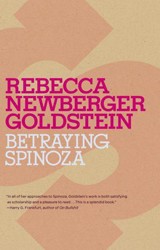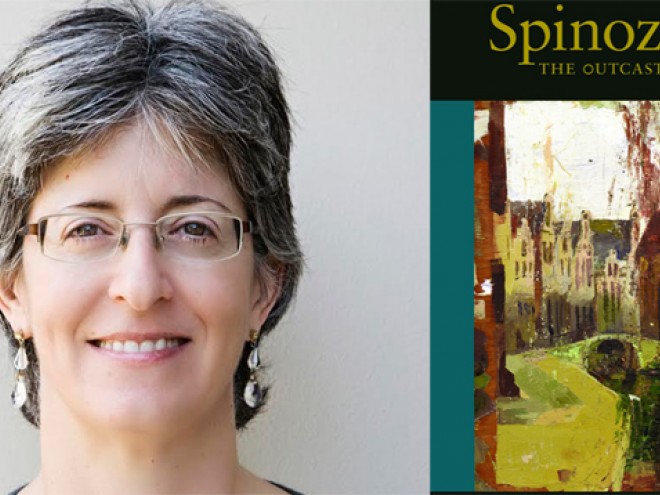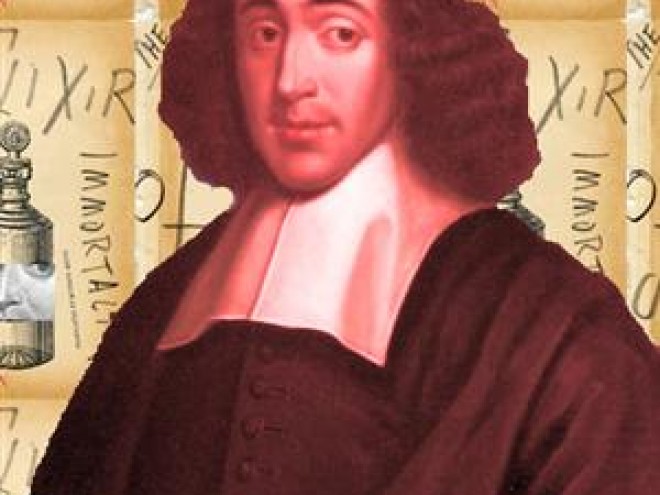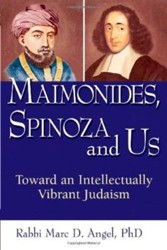Serious. Sad. Informative. First-time author Devra Lehmann produces an outstanding explanation of the once-shocking philosophy of the now-revered Benedict de Spinoza. The detailed, chronological biography opens with a flashback to the most dramatic event in his life, also one of the most incredible in the history of Judaism: his 1656 excommunication in a staged synagogue ceremony replete with black candles, tolling bells, and curses. A lifelong Jew who could never again associate with family, friends, or community, Spinoza survives this trauma to create. After that he is a shadow, more mind than touchable person, ever in the background as the book parses his radical ideas. The trappings of his sad life, satisfied only by his thoughts and writings, are a meager existence as a lens grinder, a boarder in strangers’ houses, combined living and working quarters, which provide fertile fuel for his lung disease as his fertile mind grinds out books of new concepts, centuries ahead of their time.
Lehmann does a wonderful job, clearly presenting Spinoza’s revolutionary thinking, his bravery in insisting on reason in a world ruled by theology, and in continuing to write and publish (not to mention the courage of his publishers). Our modern individual freedom and democratic theory rise from Spinoza’s concepts; Lehmann reveals these against the backdrop of seventeenth century Holland. She develops the fury of established Judaism which reviles Spinoza’s recasting of God in whom he believed, but removed as creator, Torah writer, dispenser of ethical rewards, and designator of chosen people. The Jewish community brands him not man, but instrument of the devil. But Spinoza is a man, a man of his own mind and heart. He seeks truth because truth is the ultimate good. Lehmann provides almost as many illustrations and maps as pages of text. This format adds to weightiness: the engravings and woodcuts, all excellent choices, are not well reproduced, but murky with long captions. Lehmann’s thoughtful clarity validates Spinoza’s explosive impact on authority, tradition and religion. Philosophy dominates. Readers think, but also feel for this frail man with the strong mind whose ideas underpin our modern world. Highly recommended for ages 13 and up.
Ellen G. Cole, a retired librarian of the Levine Library of Temple Isaiah in Los Angeles, is a past judge of the Sydney Taylor Book Awards and a past chairperson of that committee. She is a co-author of the AJL guide, Excellence in Jewish Children’s Literature. Ellen is the recipient of two major awards for contribution to Judaic Librarianship, the Fanny Goldstein Merit Award from the Association of Jewish Libraries and the Dorothy Schroeder Award from the Association of Jewish Libraries of Southern California. She is on the board of AJLSC.





